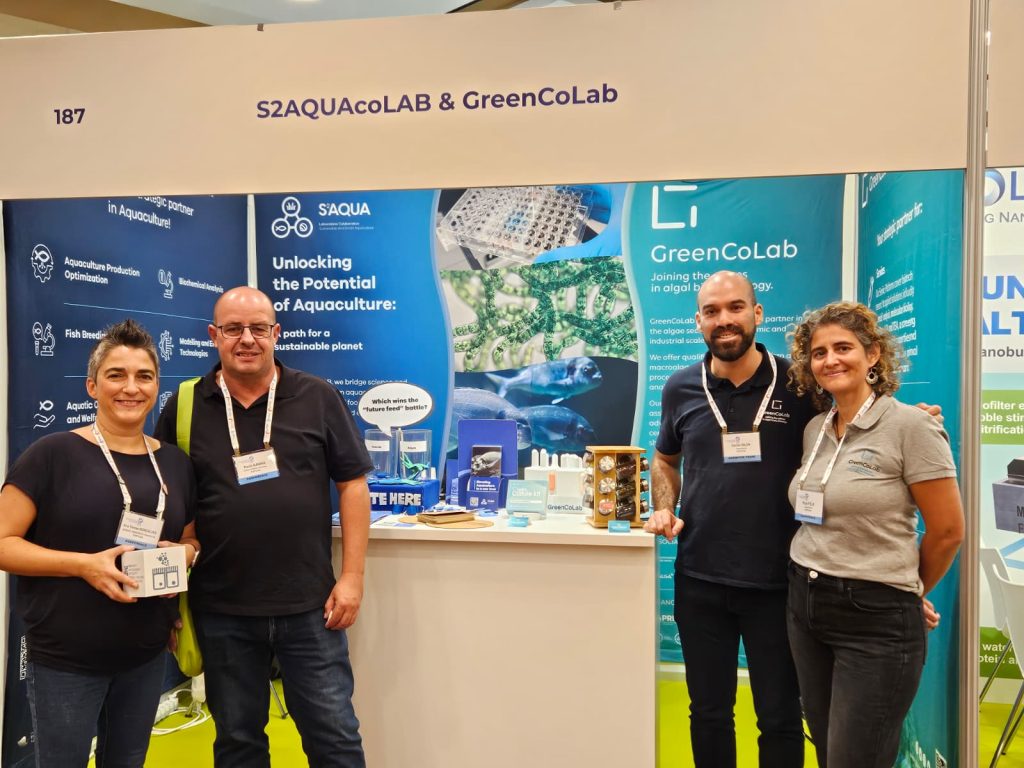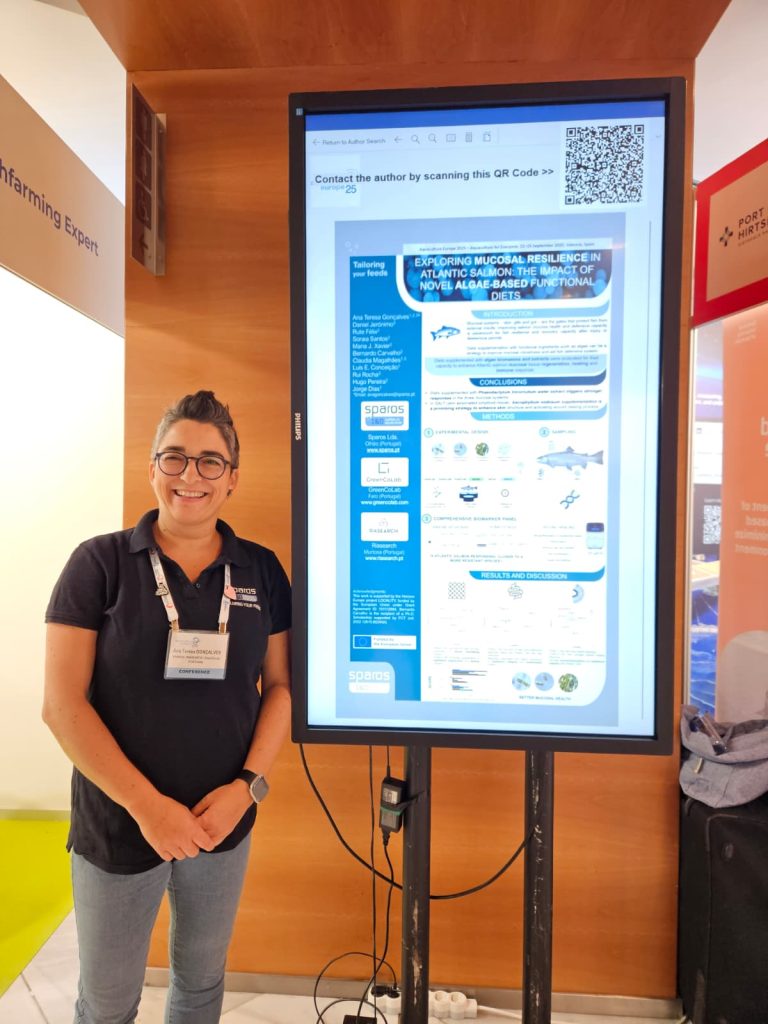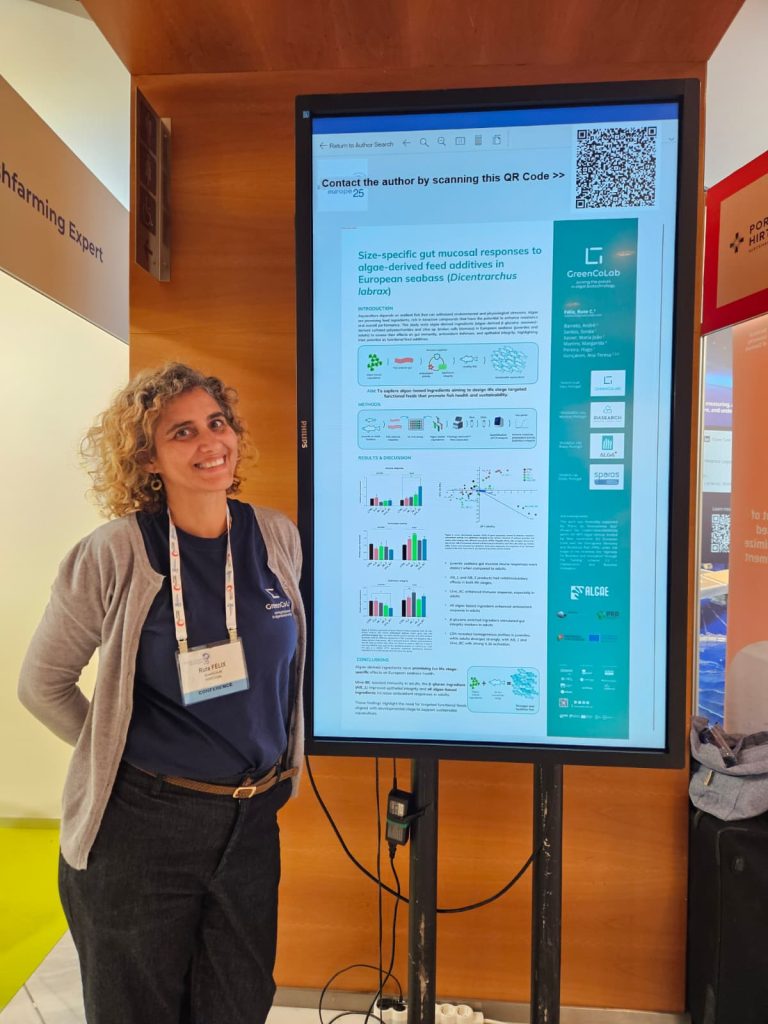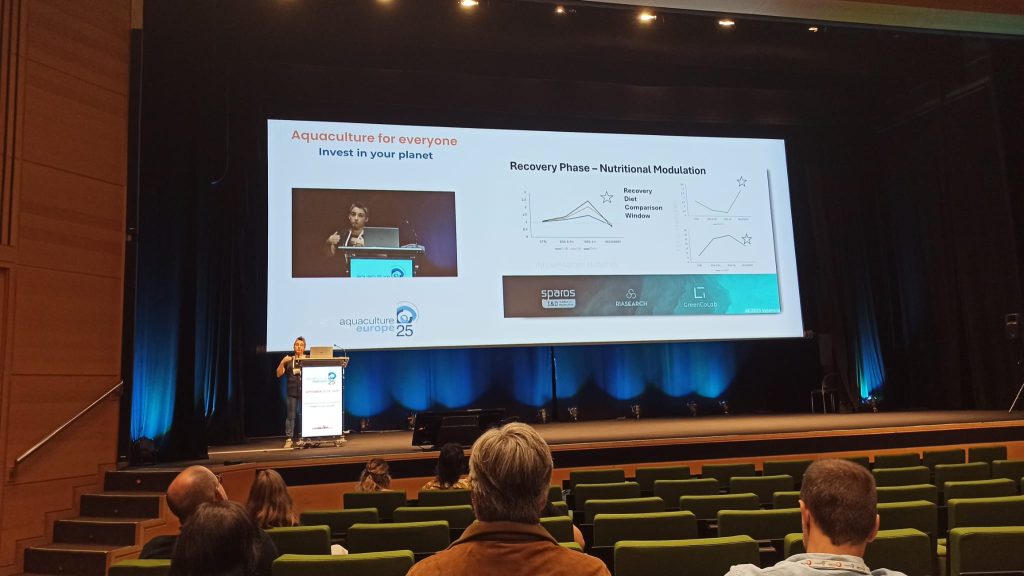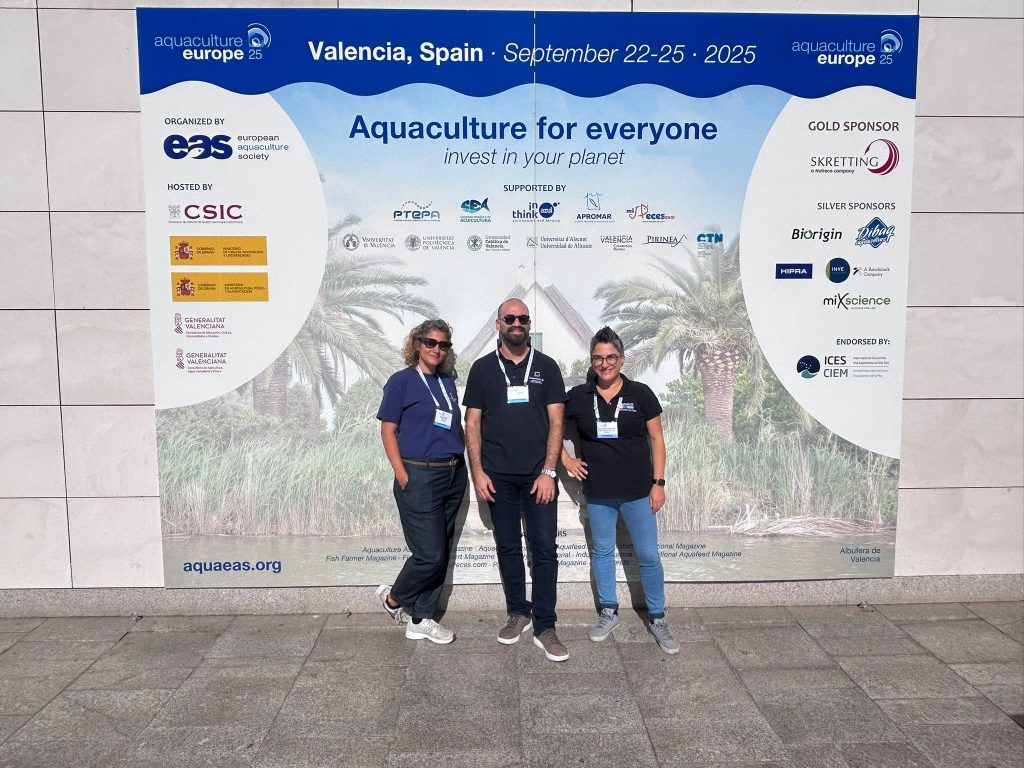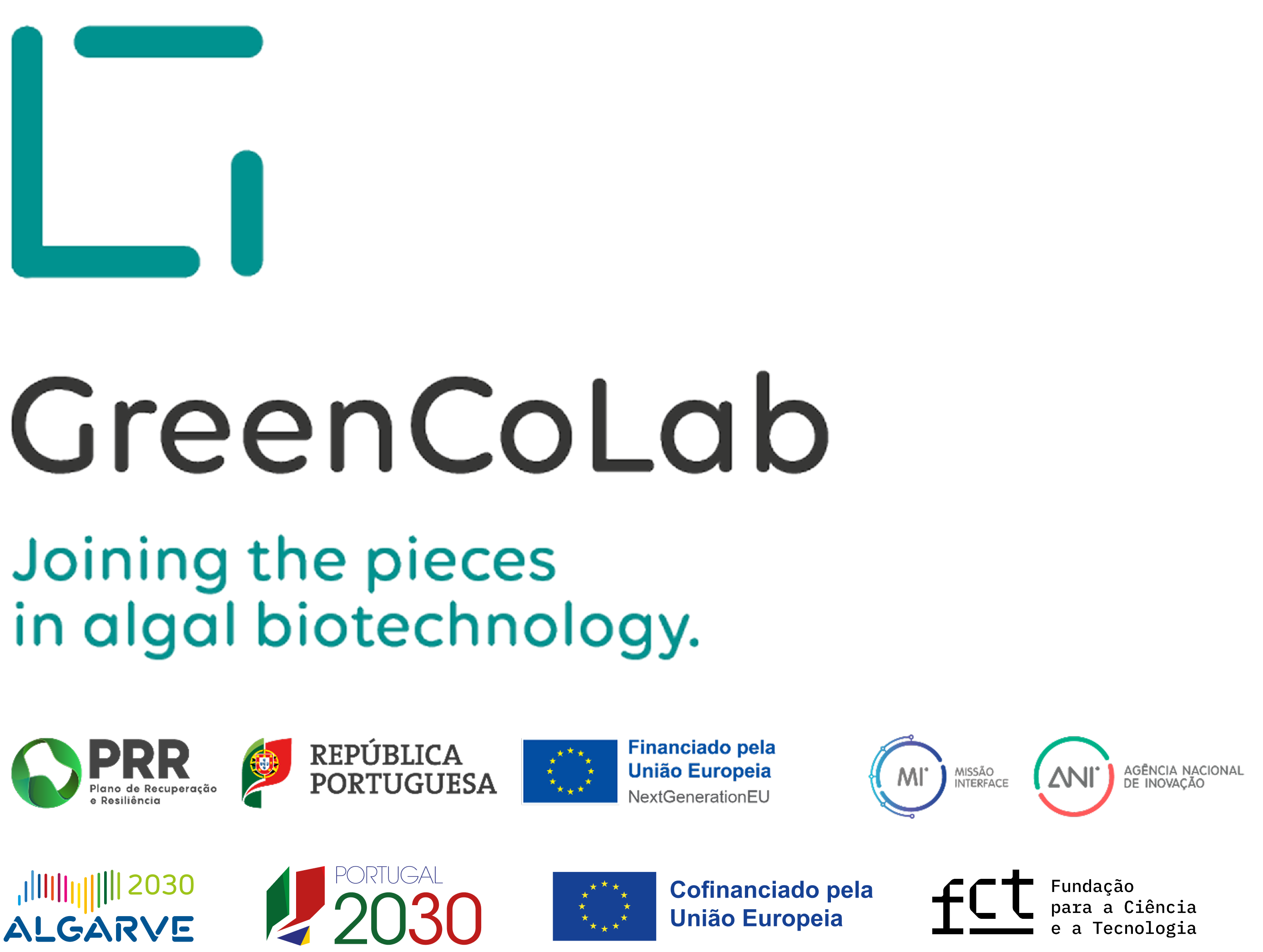Aquaculture Europe 2025, a conference organised by the European Aquaculture Society, was held in Valencia, Spain, bringing together around 4,000 participants, including scientists, experts, industry leaders, policymakers, and students from across Europe. GreenCoLab was there once again in partnership with S2AQUAcoLAB. The meeting stood out as a central forum for discussing the future of sustainable aquaculture.
On the first day, the Session dedicated to Nutrition: Digestibility and Sustainability featured a oral presentation by Ana Teresa Gonçalves, leader of the Animal Nutrition Group at GreenCoLab, entitled “A Model of Intestinal Inflammation for Nutrition in Aquaculture”. Her work highlights a standardized model of intestinal inflammation in fish, targeting sea bass and trout, in close collaboration with SPAROS, Lda, Riasearch, and GreenCoLab.
In the GreenCoLab stand (#187), the ex vivo Platform for Functional Screening, an innovative tool for evaluating and classifying functional ingredients and additives in aquaculture feed, was showcased to visitors. Algae extracts obtained through sustainable biorefinery processes and kits for detecting contaminants in algae production were also presented.
In addition, researchers Rute Félix and Ana Teresa presented scientific posters featuring their most recent work:
- “Size-specific gut mucosal responses to algae-derived feed additives in European seabass (Dicentrarchus labrax)” by Rute Félix, explored how algae-derived ingredients have promising but life-stage-specific effects on European seabass health (Algae Vertical project).
- “Exploring Mucosal Resilience in Atlantic Salmon: The Impact of Novel Algae-Based Functional Diets” – Ana Teresa Gonçalves, presented about diets supplemented with algae extracts that trigger stronger defensive responses in salmon gut, gills and skin mucosal systems (LOCALITY project).
With the motto “Aquaculture for Everyone”, the conference reaffirmed the relevance of marine science and innovation as pillars for the development of more sustainable and resilient aquaculture.



